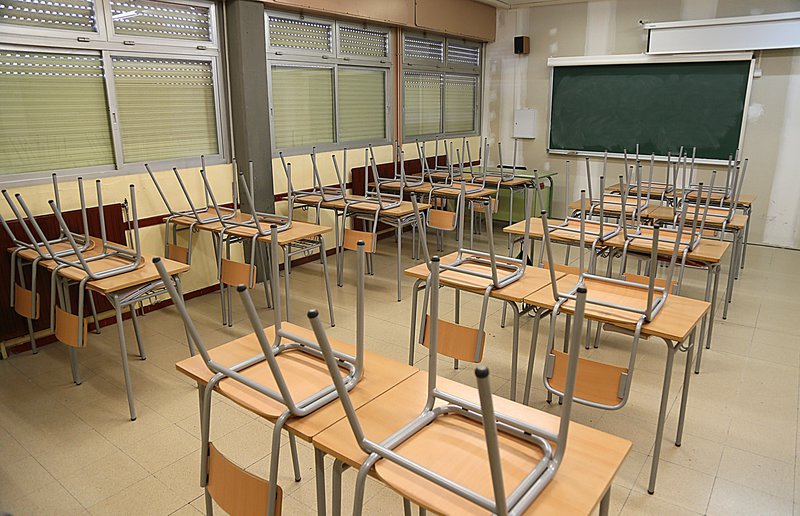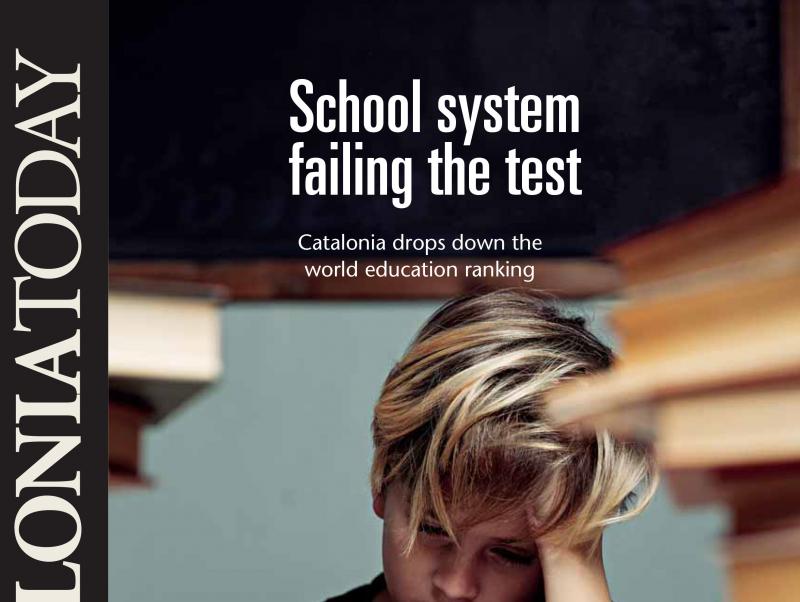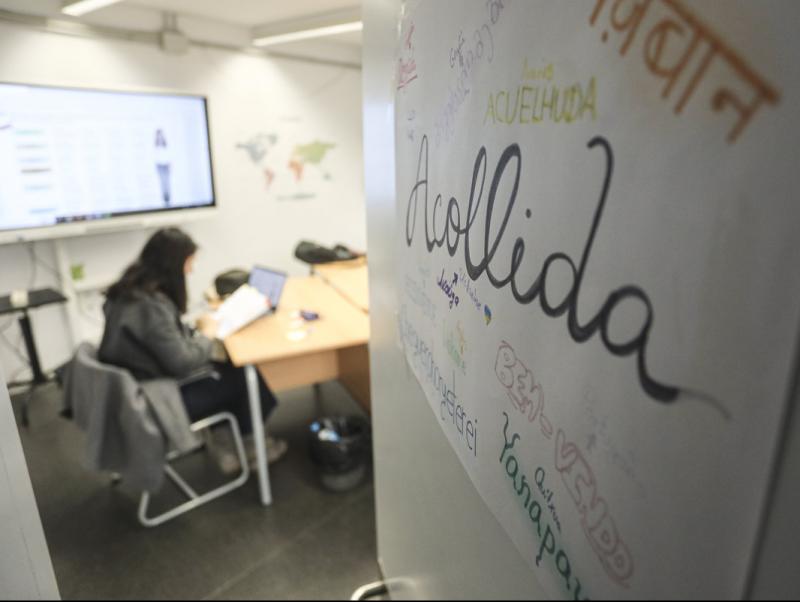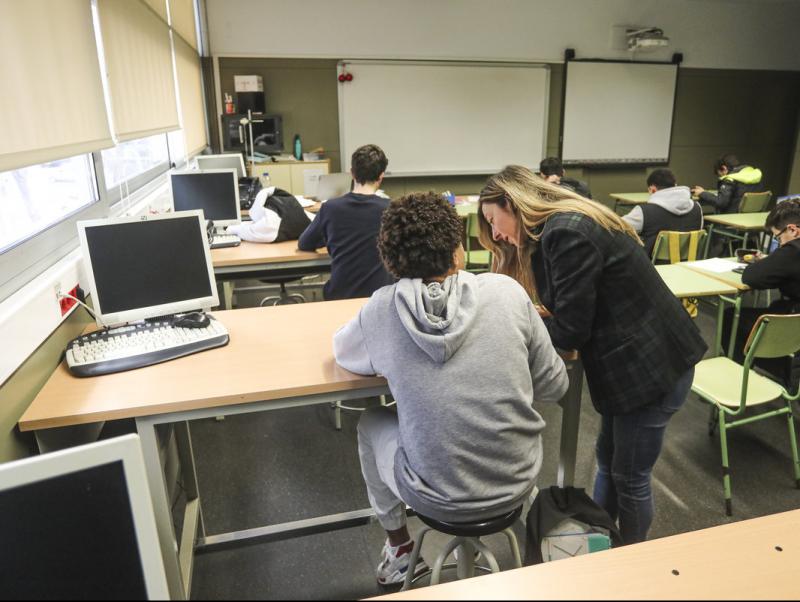A lost decade
Catalonia’s poor showing in the PISA tests raises questions about standards, but experts say the quality of the system has been falling for years due to a lack of investment
The results of the international PISA tests have generated intense debate in different countries. International rankings usually generate more disappointments than joys, and in the weeks leading up to their publication in the media, anxiety usually builds between ministers and education officials. In most cases, these are like summer storms: noisy and short-lived. This time, however, it has been different in Catalonia (and in other countries such as France), because the decrease in scores is spectacular and coincides with a certain social perception, supported by other indicators such as periodic internal evaluations, which indicate serious structural problems.
PISA and the OECD
As its name suggests, PISA - the Programme for International Student Assessment – is an international programme for evaluating education systems. It is implemented every three years among a representative sample of 15-year-old students, and organised by the OECD. The latter point is important, because this international body, a mix between the United Nations and a club of rich states, theoretically promotes economic cooperation and development.
What does PISA look for? The homogenisation of national education systems according to certain parameters. This is similar to what happened with the Bologna Plan (2008) and university systems, aimed at making degrees interchangeable and homologated in a globalised economy. And just as Bologna imposed a university model in line with the English-speaking tradition (flexibility, the ECTS credit system, internationalisation), with PISA, the OECD seeks to impose a competence-based education system.
Competence-based system
In a globalised economy, the business world is not looking for students with extensive knowledge, but future flexible workers adaptable to constant change, prepared for a precarious existence and the typical erratic work trajectories typical of neoliberalism.
What does PISA do? It designs tests according to competences. Taking into account that Western education systems draw on different traditions, this implies that the PISA tests reward those systems most prone to capitalism and harm systems that place more weight on theory. It is like a group of Olympic athletes being forced to play basketball. Being an agile gymnast, tough long-distance runner or experienced sailor has no value: being two metres tall will always mean playing with an advantage. In other words, PISA compares apples to oranges. A better or worse ranking says nothing about whether the education system in the Netherlands is better than that of Portugal or Italy, but rather that characteristics and traditions determine its classification. Also, the score out of 500 maximises differences. If it were out of 100, the results would be less spectacular.
The competence paradox
Implementing the changes “advised” by the OECD does not necessarily translate into improvements either. It often implies the opposite, in fact. An example of this is what has happened with Sweden and Finland. The former implemented reforms in line with the demands of international organisations throughout the 1980s and 1990s: flexible curricula, making teachers private employees, experimenting with new, more active methodologies and promoting “free” schools (private schools supported by public funds). The results have been catastrophic. They have fallen from 516 points (2000) to 487 (2022) in reading; from ninth to nineteenth position. Sweden is the richest country in Scandinavia and invested a lot of resources for worse results. Finland, which is the poorest, with a very traditional system, was at the top of the classification for many years (546 points in 2000, first; 520 points in 2018, seventh). From the moment it began to implement reforms imitating its neighbour, its scores fell (490 points in 2022, 17nth). Finland always had a very traditional, memory-based system, orderly and silent classrooms, few hours of class, a lot of homework and a reverential respect for teachers. On the other hand, the Asian countries that stand out in the classification (Singapore, Japan, Korea) are education systems that resemble, in structure and form, the European systems of 50 years ago. In other words, with PISA we are witnessing the paradox that the best way to have a good command of competences is to have curricula based on knowledge and traditional methodologies. This, combined with the often brutal pressure from families put on students.
PISA and the Catalans
Does all this mean that PISA is useless? No. Although it is neither useful nor desirable to compare ourselves with Finland or Singapore, eight editions and twenty-two years provide useful data to study the evolution of this country, or compare with the autonomous regions with which we share a system and traditions.
In fact, this work is carried out, with even more data and census tests, and annually, by the Higher Council for the Evaluation of the Education System (CSASE): the so-called “basic competences tests”. And here, the news is not good. In the first 15 years of the century, Catalonia was in the upper middle part of the 17 autonomous regions. This year it has experienced an abrupt fall and is now in a dramatic situation. The fact is that with respect to Spain, we are comparing apples with apples: the same education system, legislation, curriculum, teaching staff, initial training, traditions and similar pedagogical culture.
The Catalan exception
When analysing a situation like this, it is useful to isolate those factors that differentiate us from other autonomous regions with very similar characteristics. Once the results of the tests were made public, education officials attributed the poor outcomes to the presence of foreign students. The truth is that in the 2019-2020 school year (the last year for which Idescat published data), if we remove European students, we are left with 155,000 students out of 1,620,743 at all levels of education in state and private schools (9.6%). In 2014-15, there were 129,000 non-Europeans out of 1,549,729, or 8.3%. In other words, there has been no extreme sociodemographic evolution in this regard. This cannot explain why in this period Catalonia has gone from seventh out of nineteen, with 500 points in reading comprehension, to seventeenth, with 462 points. On the other hand, the sociodemographic composition of Catalonia is not very different from that of Valencia (ninth in 2015 and 2022) or the Balearic Islands (14th in 2015 and 10th in 2022). The second excuse has been the pandemic. Catalonia closed schools for 45 days, half the average of OECD countries and the same as the Spanish autonomous regions. So no excuses there either.
So what factors can explain the disaster? The first, that starting in 2013, the Catalan Department of Education published a decree that allows state schools to choose their own teachers. This led to a spiral of corruption and nepotism in which the most suitable professional is not chosen, but the person closest to the school management or the one least likely to challenge its decisions.
The second, especially since 2016, is the emergence of the Escola Nova 21 project, promoted by various entities linked to the financial and business sector, which has been a boost for “educational innovation” based on unconventional methodologies: project work, autonomy projects, intensive digitalisation and a series of disruptive elements that have led to pedagogical chaos in a large number of schools.
The third is initial teacher training – especially the teaching degree – which is ineffective. The curricula, based on university autonomy and contamination by new holistic and innovative pedagogies, have resulted in a reduction of the most elementary core contents and their replacement by modes such as emotional education, multiple intelligences, positive psychology and other academically questioned subjects.
The fourth is the ineffectiveness of the CSASE itself, which seems to have given up on assessing these accelerated changes.
In the country’s education system, then, a chain of wrong decisions made by a generation of unsuitable and irresponsible people has led to a lost decade. And without a change of direction, we appear doomed to lose more.
Feature Education




